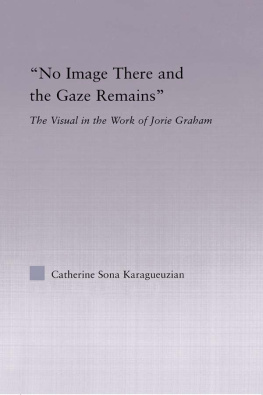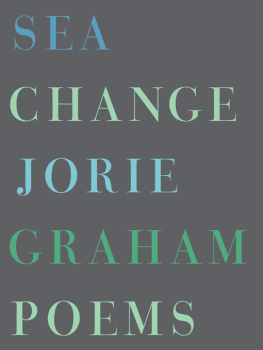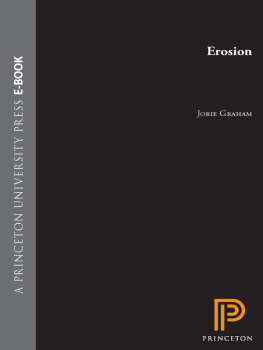STUDIES IN MAJOR
LITERARY AUTHORS
Edited by
William E. Cain
Professor of English
Wellesley College
A Roudedge Series
STUDIES IN MAJOR LITERARY AUTHORS
WILLIAM E. CAIN, General Editor
THE CARVER CHRONOTOPE
Inside the Life-World of Raymond Carver's Fiction
G. P. Lainsbury
THIS COMPOSITE VOICE
The Role of W. B. Yeats in James Merrill's Poetry
Mark Bauer
ELIZABETH STODDARD AND THE BOUNDARIES OF BOURGEOIS CULTURE
Lynn Mahoney
AMERICAN FLANEUR
The Physiognomy of Edgar Allan Poe
James V. Werner
CONRAD'S NARRATIVES OF DIFFERENCE
Not Exactly Tales for Boys
Elizabeth Schneider
JAMES JOYCE AND THE PERVERSE IDEAL
David Cotter
GERARD MANLEY HOPKINS AND VICTORIAN CATHOLICISM
Jill Muller
GEORGE ORWELL, DOUBLENESS, AND THE VALUE OF DECENCY
Anthony Stewart
PROGRESS AND IDENTITY IN THE PLAYS OF W. B. YEATS
Barbara A. Seuss
FREDERICK DOUGLASS'S CURIOUS AUDIENCES
Ethos in the Age of the Consumable Subject
Terry Baxter
THE ARTIST-FIGURE, SOCIETY, AND SEXUALITY IN VIRGINIA WOOLF'S NOVELS
Ann Ronchetti
T. S. ELIOT'S CIVILIZED SAVAGE
Religious Eroticism and Poetics
Laurie J. MacDiarmid
WORLDING FORSTER
The Passage from Pastoral
Smart Christie
WILLIAM DEAN HOWELLS AND THE ENDS O REALISM
Paul Abeln
WHITMAN'S ECSTATIC UNION
Conversion and Ideology in Leaves of Grass
Michael Sowder
READY TO TRAMPLE ON ALL HUMAN LAW
Financial Capitalism in the Fiction of Charle Dickens
Paul A. Jarvie
PYNCHON AND HISTORY
Metahistorical Rhetoric and Postmodern Narrative Form in the Novels of Thomas Pynchon
Shawn Smith
A SINGING CONTEST
Conventions of Sound in the Poetry of Seamu Heaney
Meg Tyler
EDITH WHARTON AS SPATIAL ACTIVIST AND ANALYST
Rene Somers
QUEER IMPRESSIONS
Henry James's Art of Fiction
Elaine Pigeon
NO IMAGE THERE AND THE GAZE REMAINS
The Visual in the Work of Jorie Graham
Catherine Sona Karagueuzian
NO IMAGE THERE AND
THE GAZE REMAINS
The Visual in the Work of Jorie Graham
Catherine Sona Karagueuzian

Excerpts from Hybrids of Plants and of Ghosts, by Jorie Graham, Copyright 1980 by Princeton University Press, and Erosion, by Jorie Graham, Copyright 1983 by Princeton University Press reprinted by permission of Princeton University Press.
Specified excerpts totaling 169 lines from The End of Beauty, copyright 1987 by Jorie Graham; specified excerpts totaling 201 lines from Region of Unlikeness, copyright 1991 by Jorie Graham; specified excerpts totaling 192 lines from Materialism, copyright 1993 by Jorie Graham; specified excerpts totaling 194 Iines from The Errancy, copyright 1997 by Jorie Graham; specified excerpts totaling 135 lines from Swarm, copyright 1999 by Jorle Graham; and specified excerpts totaling 225 lines from Never, copyright 2002 by Jorie Graham, reprinted by permission of HarperCollins Publishers Inc.
Published in 2005 by
Routledge
Taylor & Francis Group
270 Madison Avenue
New York, NY 10016 | Published in Great Britain by
Routledge
Taylor & Francis Group
2 Park Square
Milton Park, Abingdon
Oxon OX14 4RN |
2005 by Taylor & Francis Group, LLC
Routledge is an imprint of Taylor & Francis Group.
10 9 8 7 6 5 4 3 2 1
International Standard Book Number-0-415-97532-8 (Hardcover)
International Standard Book Number-978-0-415-97532-2 (Hardcover)
No part of this book may be reprinted, reproduced, transmitted, or utilized in any form by any electronic, mechanical, or other means, now known or hereafter invented, including photocopying, microfilming, and recording, or in any information storage or retrieval system, without written permission from the publishers.
Trademark Notice: Product or corporate names may be trademarks or registered trademarks, and are used only for identification and explanation without intent to infringe.
Library of Congress Cataloging-In-Publication Data
Catalog record is available from the Library of Congress

|
Visit the Taylor & Francis Web site at
http://www.taylorandfrancis.com and the Routledge Web site at
http://www.routledge-ny.com |
For my mother
Contents
Chapter One
Jorie Graham as Twenty-First Century Modernist
Chapter Two
The Impact of the Poet's Eye upon the World and the Word:
Hybrids of Plants and of Ghosts and Erosion
Chapter Three
Self-Portrait and Autobiographical Vision:
The End of Beauty and Region of Unlikeness
Chapter Four
The Impenetrable World and the Poet's Frustrated Vision:
Materialism and The Errancy
Chapter Five
Linguistic Economy, Abstemiousness, and the Return to the Natural World: Swarm and Never
I am grateful to many who have assisted me in various ways with the inception and completion of this project. Thank you to Stephen Yenser, who encouraged, taught, and supported me since my first year in the graduate program at UCLA; his careful and patient reading of multiple drafts and his thoughtful questions have improved my work at every stage.
I am in debt to my friends, whose support made the hard work bearable and worthwhile. I am immensely grateful to Michal Lemberger, whose love of poetry and friendship inspired me throughout graduate school and who helped convince me of the strength of this project. Her commentary and interest improved and broadened the scope of my work. I am equally grateful to my friend La'Tonya R. Miles, who has never tired of reminding me that a fulfilling family life, laughter, and television viewing are all compatible with scholarship. As I wrote, I was also inspired and diverted by Professor Erin E. Clune, whose wit and love brightened my work days and helped me see light at the end of the tunnel.
I must thank my family members, who always believed in my ability to complete this project despite the fits and starts by which it proceeded. Finishing this project would have been much more difficult without the help and rallying cries of my father, Dikran Karagueuzian, driver of the bibliobus, procurer of books, and champion of libraries everywhere: his companionship in the last stage of my writing made it pleasurable. Thank you also to my brother, Professor Dikran B. Karagueuzian, who gave me the simple yet invaluable advice that dissertations are completed by those who buckle down and do the work. Thank you to my husband, Mark Gibbons, who has lovingly supported me through the inevitable crises of confidence of graduate school and writing. His love puts everything else in perspective and truly made my completion of the project possible.
Pulitzer Prize-winning, contemporary American poet Jorie Graham has been lauded as one of our most important living poets, as one of the best, and most intelligent, poets in the language, the non-scholarly journal Current Biography reports, quoting from reviews of her books (199). Certainly, Graham's recent work also has detractors, among them William Logan, who reviewed







